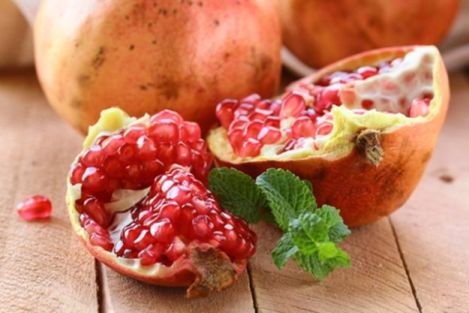Granada: Nutritional properties, benefits and contraindications
Its scientific name is Punica granatum, a native fruit of south Asia belonging to the family of Punicacea. Discover the nutritional properties of Granada, benefits and contraindications.
Its components include the potassium (diuretic), citric acid (disinfectant), flavonoids (antioxidant pigments) and tannins. It is ideal for sensitive stomachs, as the tannins give it astringent and anti-inflammatory properties on the gastrointestinal mucosa. Another benefit is that it is a rejuvenating fruit, and that its components include numerous antioxidants and vitamin C, which give elasticity to the dermis.
Properties
The Granada is mainly grown in temperate climates. In the case of Europe, Spain and Italy. The beneficial properties of Granada were already known in ancient times, coming to use the shell to regulate lazy bowel. Did you know, for example, in the East it is a symbol of love and fertility?
The Granada, although it has a slightly bitter flavor, is rich in minerals, water and vitamins (A, B, K). It is rich in antioxidants, proteins, carbohydrates, fats and minerals such as potassium, iron, calcium, magnesium, phosphorus and, to a lesser extent, manganese and zinc. It contains approximately 60 kilocalories per 100 grams.
Benefits
Thanks to the presence of tannins, this fruit exerts antitumoral action, hindering metastasis formation and reducing the effects of free radicals. The anthocyanins contained in Pomegranate juice exert a protective action against damage from ultraviolet rays. The juice can also act as a blood thinner, reducing the risk of atherosclerosis and improve the prevention of cardiovascular diseases.
But the benefits do not end there. Regular consumption helps control cholesterol, lowering bad (LDL) and increasing good (HDL) cholesterol. It also helps to fight obesity, improve the general welfare and it is indicated for patients on dialysis.
Contraindications
Excessive consumption of Granada (in particular the active principles derived from the bark) can cause poisoning. In these cases, the symptoms are dizziness, headache, drowsiness and difficulty in breathing. In addition, this fruit juice may inhibit the effect of some medications. If you are taking any drug, you should consult your doctor about possible interactions with certain foods, including Granada. Although rare, it can cause allergic reaction, for example when applied to the skin (itching, nasal congestion…).
